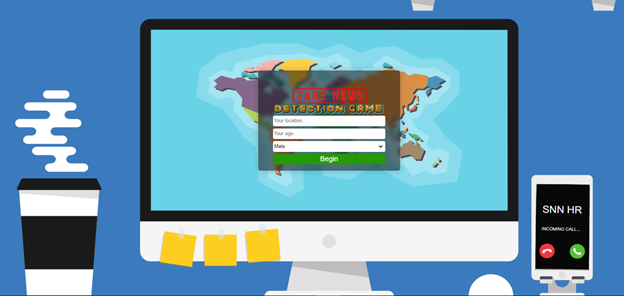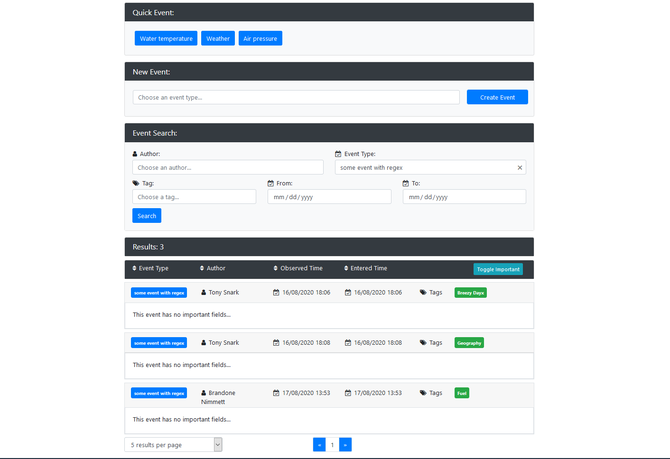When you study the Bachelor of Information Communication and Technology (BICT), you get the chance to complete a capstone project and explore an ICT topic of your choice.
This might mean creating business solutions for real clients, developing technology-driven projects, investigating issues of social impacts, or designing games and creative technology.
Alex Smeeks, BICT student studying his final year of the Bachelor majoring in Games and Creative Technology.
As his capstone project, Alex recently worked with an industry client to design and develop a Fake News Visual Detection Game. The aim of this game was to collect data on how well the public can identify fake news in modern media and to help them better detect misleading or fake news on the internet.
COVID-19 made this project course run quite a bit differently. My advice for anyone starting this course would be to separate the project into must have, nice to have, and 'maybe' features, and treat them as that.
Alex collaborated with a team of students to develop the game, which requires each player to enter the game as a journalist applying for a job with the challenge of publishing real stories or binning fake ones. Clues can be found in tools such as reverse image searches, EXIF data extraction and geolocating. But logic is the main decipher of the truth. Once done, players are presented with a score and told whether they received the job or not.
This game enables data collection on a much larger scale, with the opportunity to deliver targeted situations without needing to set up a lab testing environment. The client plans to use data collected by this game in their PhD studies.

The landing page for the game. It has a purposefully comic-styled graphics.
Stephano Vourlamis, BICT student studying his final year of the Bachelor majoring in Cyber Security.
Stephano was lucky enough to work with the team on the RV Investigator to create a new Scientific Event Logging System. This will replace an existing event logging system on the RV Investigator Vessel that was outdated and not compatible with new technology.
This project allowed my team and myself to work with a real client. It made us go back on what we had learned so far in the degree and apply it, whilst also having to learn things that we needed to learn to successfully complete the project. Overall, an excellent learning experience and unit.
A web application was created that allowed researchers to log events on the RV Investigator. These events could be anything from the sea temperature at a specific time to when a research instrument was calibrated or changed. The main goal was to provide an easy to use, documented and robust interface that could be integrated with other systems on the ship to allow for automatic event logging when a sensor picks up new data. Working across modern technology platforms would also make for a faster and more compatible system.

The front-end user interface main page.
“In each of these cases, a student team worked throughout the year with their client to build a real ICT system to support their business needs. Some are already being used in their real environments and making great changes to their client’s businesses.”
Are you interested in working on projects to change the way people do business in Tasmania and across the world? Apply Now.